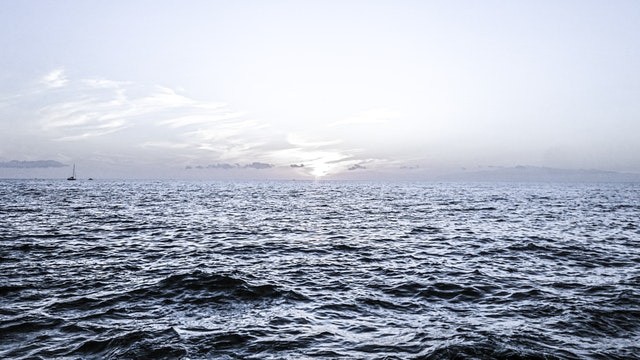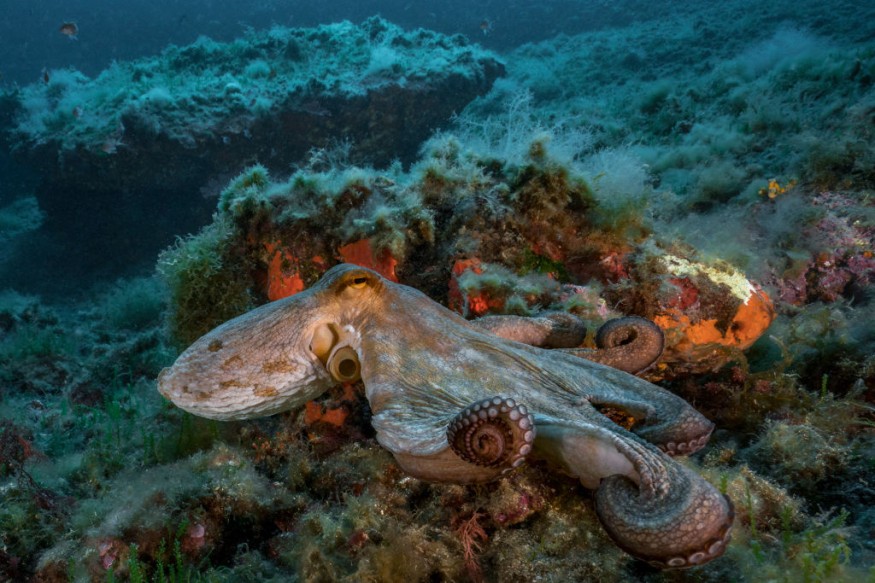According to a new global study that identified future ocean "acoustic hotspots," climate change will significantly alter how sound travels underwater, potentially affecting natural soundscapes and amplifying human-generated noise.
These changes to ocean soundscapes could impact essential marine life activities.

Sound Waves
Sound waves propagate quicker and persist longer in warmer water before dissipating.
They used public data to model the future soundscape, according to Alice Affatati, a bioacoustics researcher at Memorial University of Newfoundland and Labrador in St. John's, Canada, and lead author of the new study, which was published today in Earth's Future.
The new study predicted that at 50 and 500-meter depths, two hotspots in the Greenland Sea and a stretch of the northern Atlantic Ocean east of Newfoundland would see the biggest alteration.
Given the ongoing high greenhouse gas emissions, the average speed of sound in these seas from the surface to depths of 500 meters (1,640 feet) is anticipated to increase by more than 1.5 percent, or around 25 meters per second (55 miles per hour), by the end of the century (RCP8.5).
"The major impact is expected in the Arctic, where we already know there is an amplification of the effects of climate change now," said author Stefano Salon, a researcher at the National Institute of Oceanography and Applied Geophysics in Trieste, Italy.
"Not the entire Arctic, but one specific part where all factors play together to signal that, according to the model predictions, overcomes the uncertainty of the model itself," Salon said.
Music in the Ocean

The soundscape of the ocean is a cacophony of vibrations caused by living species, natural events such as waves and cracking ice, and ship traffic and resource exploitation. At 50 meters deep, sound speeds range from 1,450 meters per second in polar seas to 1,520 meters per second in tropical waters (3,243 to 3,400 miles per hour, respectively).
Many aquatic species communicate with one another and navigate their underwater surroundings via sound. The scientists stated that changing the sound speed can affect their capacity to forage, fight, locate mates, escape predators, and move.
Aside from the well-known hotspots around Greenland and in the northwestern Atlantic Ocean, the new research discovered a 1% increase in sound speed, or more than 15 meters per second, at 50 meters in the Barents Sea, northwestern Pacific, and Southern Ocean (between 0 and 70E), and 500 meters in the Arctic Ocean, Gulf of Mexico, and the southern Caribbean Sea.
Sound Travelling in the Water
The speed and distance that sound travels in water are affected by temperature, pressure as depth increases, and salinity. The current study focused on hotspots where the climate signal was bigger than seasonal fluctuation and stood out clearly from model uncertainty.
The current study also replicated frequent vocalizations of the North Atlantic right whale, a critically endangered species that live in both North Atlantic acoustic hotspots, under anticipated future conditions. The researchers discovered that the whales' regular "upcall" at 50 Hertz would likely propagate farther in a warmer future ocean.
They chose to focus on one megafauna species, although the soundscape affects or is used by many trophic levels in the ocean, Affatati explained. All of these hotspots are rich in biodiversity.
Merging Soundscape
The global soundscape will be merged with other maps of anthropogenic impacts in the waters in the future to indicate locations of coupled stresses or to guide the essential observational study.
"Combining multiple methodologies is the way to deal with challenging problems like climate change," said author Chiara Scaini, an environmental engineer at the National Institute of Oceanography and Applied Geophysics.
For more Environmental News, don't forget to follow Nature World News!
© 2026 NatureWorldNews.com All rights reserved. Do not reproduce without permission.





